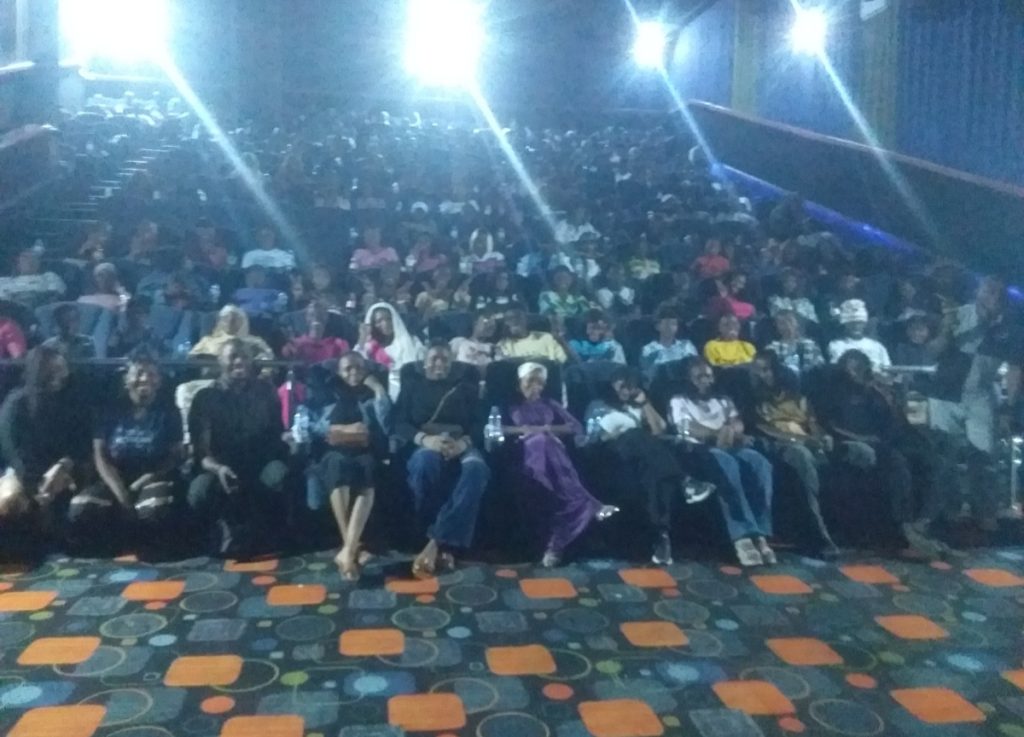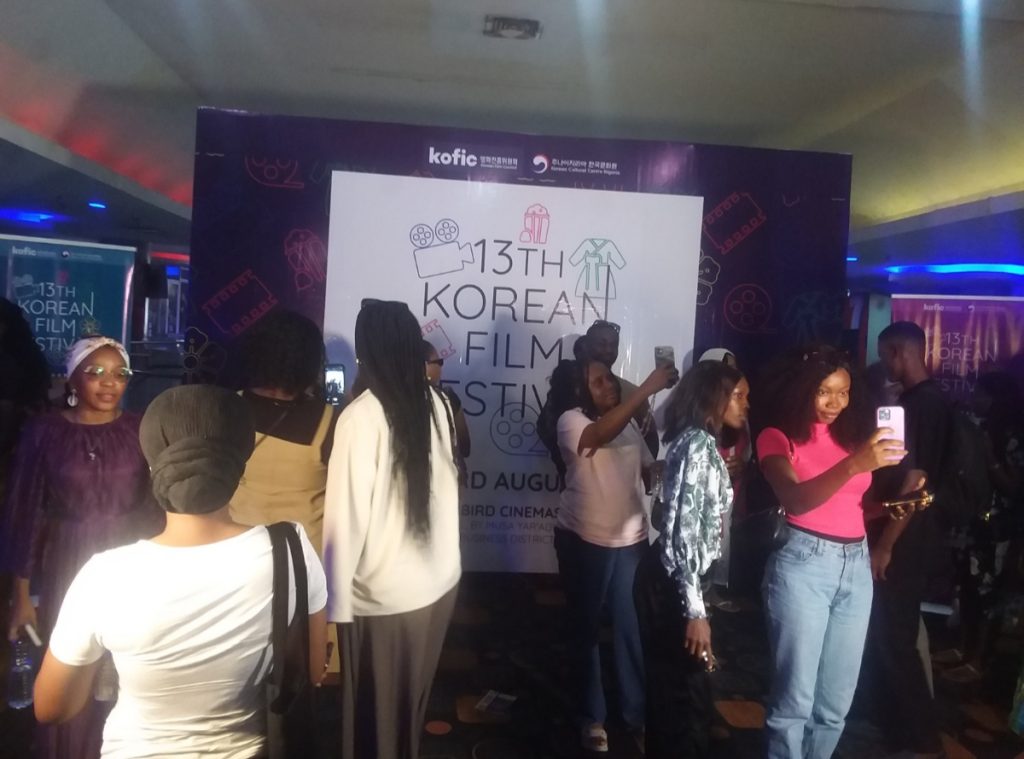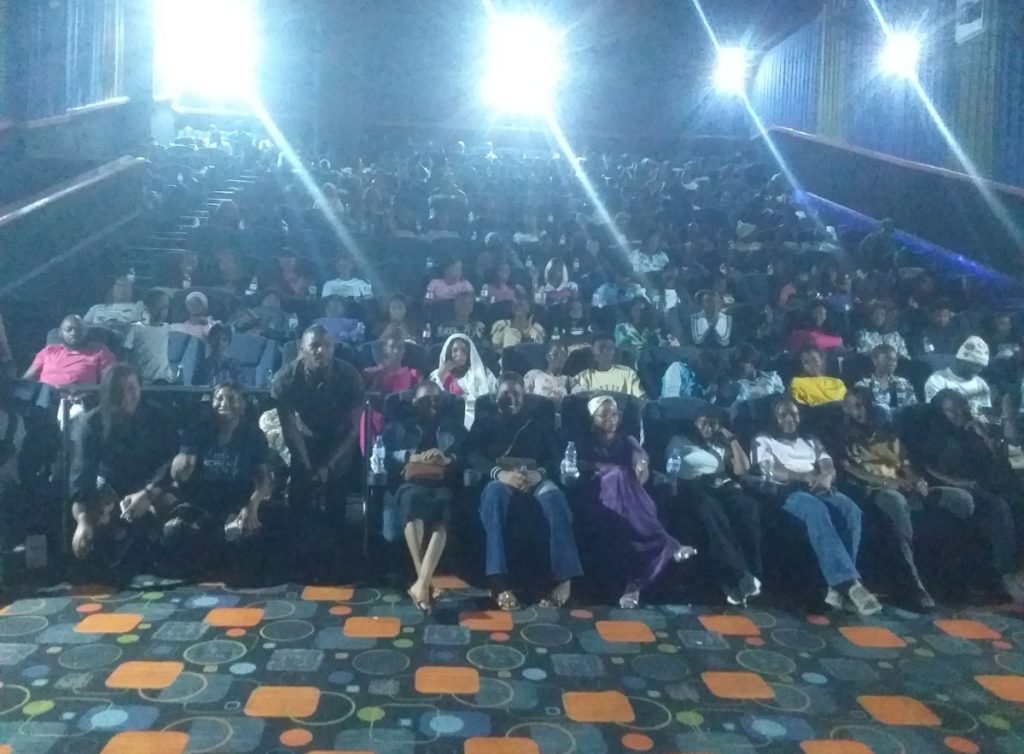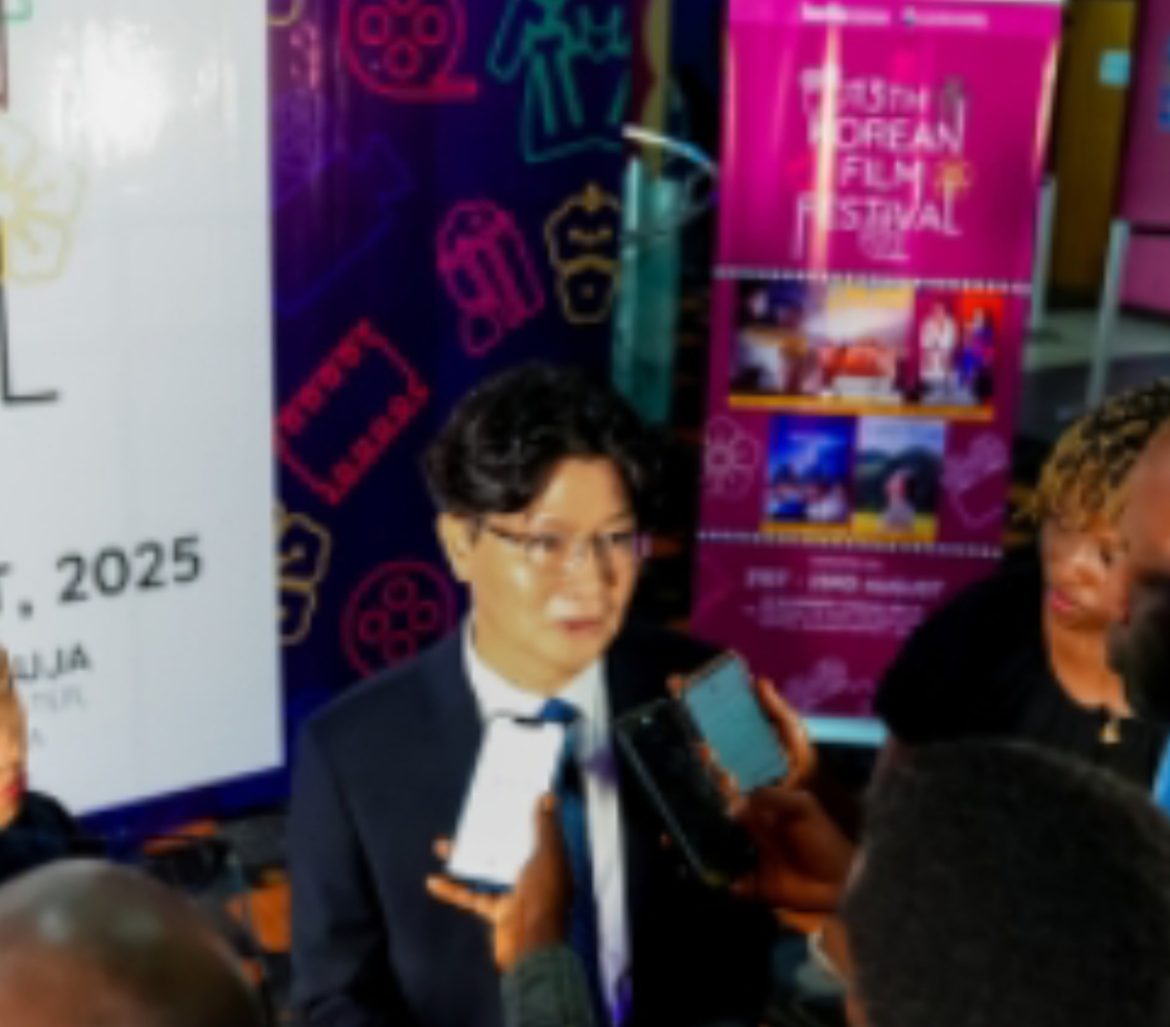The Director of the Korean Cultural Centre Nigeria (KCCN), Mr Jeon Ju Ho, says the Centre is committed to strengthen deeper ties with the Nigerian Movie Industry, also known as Nollywood.
Ju Ho stated this in an interview with newsmen at the13th Korean Film Festival at the Silverbird Cinemas in Abuja, FCT.
The KCCN director explained that the film festival serves as a valuable opportunity to strengthen connections between Nigeria and Korea, fostering deeper cultural understanding and community engagement.

He also hinted on plans to collaborate with the Film Festival Association(NFFA) to showcase both Korean cultural and Nigerian films which would be aired at the KCCN studio.
The director emphasised that movies are a very instructive artistic medium because they portray cultural norms like food, music, social life, and the total cultural fabric of a people.

“We are not forcing our culture on the Nigerian audience, we’re just showcasing how we live our lives and how similarly it is for Nigerians.
“The film festival mainly seeks to foster the mutual understanding of the different cultures,” Ju Ho said.

HammerTimes Newsonline reports that the film festival was slated for three days with five Korean Movies to entertain the audience at the Silverbird Cinemas in Abuja.
Day 1 Movie: “Untouchable Lawmen”: A raucous action-comedy about two overzealous detectives — one a hot-blooded fighter, the other a brash profiler — who are forced to team up to take down a powerful crime boss. With their clashing personalities and unorthodox methods, they dive into the case headfirst, creating chaos but also uncovering dangerous truths about corruption and power.

Day 2 Movies: “Sunset in My Hometown”: This heartfelt drama follows Hak-soo, an aspiring rapper from Seoul who has failed numerous auditions. When he returns to his rural hometown for his father’s surgery, he is forced to face old wounds, rekindle lost relationships, and rediscover his roots. Balancing humor, music, and nostalgia, the film paints a moving picture of family, reconciliation, and self-discovery.

“We Are Brothers”: A touching comedy about two brothers separated in childhood and raised in different environments — one becomes a pastor, the other a shaman. Reunited as adults, they embark on a chaotic road trip to find their missing birth mother. Along the way, they clash due to their opposing beliefs but ultimately uncover the deeper meaning of family and brotherhood.
Day 3 Movies: “Feng Shui”: Set in the late Joseon era, this historical drama explores the world of geomancy (feng shui) and its role in shaping dynastic power struggles. Park Jae-sang, a master geomancer, becomes entangled in a deadly conflict between aristocrats and royals who seek to secure auspicious burial sites believed to determine the fate of kingdoms. Rich in intrigue and political maneuvering, the film combines historical spectacle with themes of ambition and destiny.
“Little Forest”: A gentle, slice-of-life film about Hye-won, a young woman worn out by city life, who retreats to her countryside hometown. There, she reconnects with nature, cooks meals from seasonal ingredients, and heals through the rhythms of rural living. With the support of childhood friends, she gradually finds peace and meaning in life’s simple pleasures.

Also speaking, the Cultural Event Manager of KCCN, Ms Yunjin Lee, said the Centre decided to bring to the Nigerian audience Korean movies that are not common, so that they can enjoy different !orean movies.
Lee explained that the festival served as a platform to celebrate not only the cinematic artistry of Korea but also to foster intercultural understanding and appreciation between Korea and Nigeria.

“We are KCCN, but we will also want to have collaborations with Nigerian Film Association so that we can understand and learn from each other,” Lee said.
Most of the audience expressed satisfaction, stressing that they enjoyed all the movies and had fun watching the films.

They appreciated KCCN and demanded that more of such sbould be organised by the Centre.

